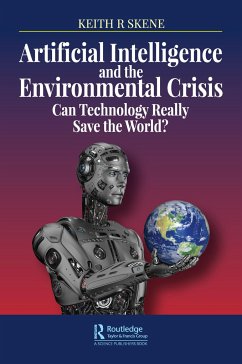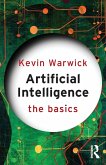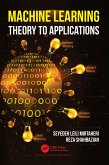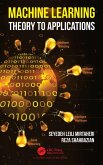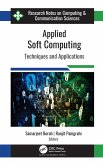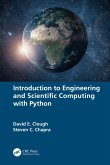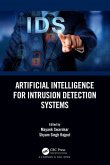A radical and challenging book which argues that artificial intelligence needs a completely different set of foundations, based on ecological intelligence rather than human intelligence, if it is to deliver on the promise of a better world. This can usher in the greatest transformation in human history, an age of re-integration. Our very existence is dependent upon our context within the Earth System, and so, surely, artificial intelligence must also be grounded within this context, embracing emergence, interconnectedness and real-time feedback. We discover many positive outcomes across the societal, economic and environmental arenas and discuss how this transformation can be delivered.
Key Features:
Identifies a key weakness in current AI thinking, that threatens any hope of a better world.Highlights the importance of realizing that systems theory is an essential foundation for any technology that hopes to positively transform our world.Emphasizes the need for a radical new approach to AI, based on ecological systems.Explains why ecosystem intelligence, not human intelligence, offers the best framework for AI.Examines how this new approach will impact on the three arenas of society, environment and economics, ushering in a new age of re-integration.
Key Features:
Identifies a key weakness in current AI thinking, that threatens any hope of a better world.Highlights the importance of realizing that systems theory is an essential foundation for any technology that hopes to positively transform our world.Emphasizes the need for a radical new approach to AI, based on ecological systems.Explains why ecosystem intelligence, not human intelligence, offers the best framework for AI.Examines how this new approach will impact on the three arenas of society, environment and economics, ushering in a new age of re-integration.
"To call this text wide-ranging would be a significant understatement, and Skene has set himself an enormous task. Across 10 discrete sections, he seeks to define and illustrate not only the nature of human, and non-human, intelligence - but also the diverse nature of ethical debate, the nature of economics and sustainability, the myriad threats that human exploitation poses to the biosphere, how these could be addressed and the dramatic structural changes to society that would be necessary.
Moving beyond humanity to the (perhaps vexed) question of intelligence as a broader concept, Skene explores the concepts of swarm intelligence and the wisdom of crowds, culminating in an exposition of how 'ecosystem intelligence' might be employed as a tool in developing sustainable global solutions to environmental management - through the agency of artificial intelligence (AI) systems. This book is a passionate manifesto, a call to arms, by someone who clearly cares deeply about his subject."
- John Gilbey, Department of Computer Science, Aberystwyth University, An Excerpt from Times Higher Education
"In this remarkably cross-disciplinary study, environmental biologist and prolific science communicator Skene (Biosphere Research Institute) challenges the notion that technological advances such as applied artificial intelligence necessarily foster inequity and environmental degradation. The book includes hundreds of compelling examples, among them the success of big data in increasing the efficiency of agriculture while decreasing environmental cost and its potential to promote ethical consumption by supporting consumer alerts with respect to the environmental and social impacts of individual purchases. The book is extensively referenced but reads as a thought-provoking popular science book rather than a strictly academic work. As such, it will engage the general public and inspire lively classroom discussions."
- D. P. Genereux, Broad Institute of Harvard University and Massachusetts Institute of Technology, Choice, Dec 2020 Vol. 58 No. 4
Moving beyond humanity to the (perhaps vexed) question of intelligence as a broader concept, Skene explores the concepts of swarm intelligence and the wisdom of crowds, culminating in an exposition of how 'ecosystem intelligence' might be employed as a tool in developing sustainable global solutions to environmental management - through the agency of artificial intelligence (AI) systems. This book is a passionate manifesto, a call to arms, by someone who clearly cares deeply about his subject."
- John Gilbey, Department of Computer Science, Aberystwyth University, An Excerpt from Times Higher Education
"In this remarkably cross-disciplinary study, environmental biologist and prolific science communicator Skene (Biosphere Research Institute) challenges the notion that technological advances such as applied artificial intelligence necessarily foster inequity and environmental degradation. The book includes hundreds of compelling examples, among them the success of big data in increasing the efficiency of agriculture while decreasing environmental cost and its potential to promote ethical consumption by supporting consumer alerts with respect to the environmental and social impacts of individual purchases. The book is extensively referenced but reads as a thought-provoking popular science book rather than a strictly academic work. As such, it will engage the general public and inspire lively classroom discussions."
- D. P. Genereux, Broad Institute of Harvard University and Massachusetts Institute of Technology, Choice, Dec 2020 Vol. 58 No. 4

